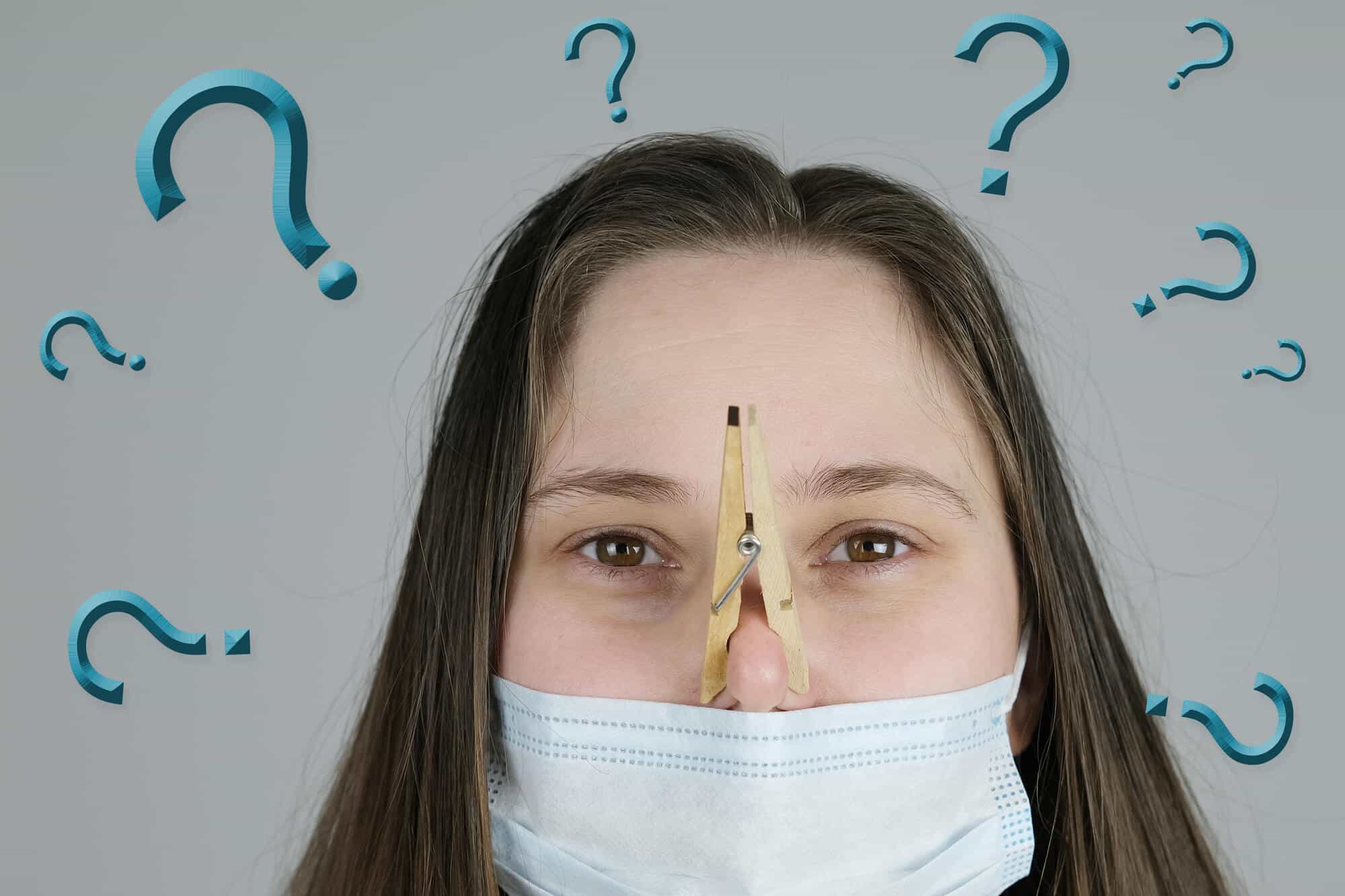One of the mentioned side effects of the corona virus is the loss of the sense of smell. A new study led by Prof. Masha Niv from the Hebrew University, reveals High incidence of two health phenomena that appear following the loss of the sense of smell, among those recovering from corona. These ongoing phenomena disturb tens of thousands of Israelis over a long period of time - but many are still unaware of their severity and prevalence

Loss of smell is a symptom of the coronavirus with an estimated prevalence of between 40-70 percent of patients. A lack of smell affects a person's physical and mental health and nutritional behavior. Therefore, it is critical to understand the timing and course of odor recovery. New research led Prof. Masha Niv from the Faculty of Agriculture, Food and Environment at the Hebrew University, which was published this week in the scientific archive "Medrxiv", before peer review, that many of those who suffered from the loss of the sense of smell recover, and even more those whose sense of smell remains weak for a long time, Proosmia and phantosmia are also reported.
The current study was carried out through an international association for the study of damage to the senses of taste and smell, established by researchers from around the world, called GCCR. Prof. Niv and her team, who take a central part in Magad, contacted 12 thousand subjects, who participated in the month of April-September 2020 in the previous GCCR study on symptoms of respiratory diseases. 3,000 of them responded to the current study, with 1,400 of them being corona patients who lost their sense of smell and taste during the illness. The researchers found that between 2-11 months after the disease, 60% of the women and 48% of the men reported less than 80% of the ability to smell compared to pre-disease. In general, the sense of taste usually recovers faster than the sense of smell after recovering from the virus, and only rarely does the loss of taste persist when the sense of smell returns. The persistence of a damaged sense of smell is accompanied by a higher number of other persistent symptoms (such as headache and fatigue), this is contrary to what was thought in the past - that the loss of the sense of smell following the corona disease indicates a milder disease.
Prosmia is a condition in which there is a distortion of smells, so that certain smells smell different and usually unpleasant. Phantasmia is a phenomenon of hallucinating smells that do not exist in reality. The typical reports received for proosmia during the study were "Some things now smell different and unpleasant" or "like chemicals", and the reports of phantosmia included responses such as "Sometimes I smell a burning smell, which no one around me smells". In addition, New and surprising information was found in the study - While during the illness the frequency of prosemia and phantosmia was about 10% of the patients who lost the sense of smell, after recovery from the disease the frequency increased significantly - prosmia was reported in 47% and phantosmia in 25%. That is, proosmia and phantosmia become more common phenomena over time. Prof. Niv estimates, based on the numbers of those recovering from Corona and the prevalence of persistent loss of smell, that millions of people in the world suffer from these problems today.
And what is happening in the Israeli sector? According to Prof. Niv's rough estimate, if there are currently about a million people recovering from the disease and about half of them have lost their sense of smell, it is likely that tens of thousands "carry" with them a weakened sense of smell, and/or suffer from prosmia or phantosmia. "We are talking about tens of thousands of Israelis with a permanent damage to the sense of smell. Disorders in the sense of smell harm the appetite, the mental state and the quality of life in general. Awareness of the problem and its broad scope is extremely important. Following the corona disease, it is necessary to continue the research and development of treatment methods for damage to the sense of smell, which appear as part of the post-corona phenomenon, and to take seriously this wide-ranging phenomenon", Prof. Niv explained this week.
More of the topic in Hayadan:
- A gene whose defect causes myopia has been located
- Painful but less
- Is the loss of the sense of smell and taste a sign of corona?
- Corona detection through self-monitoring of the sense of smell
- Researchers from the Hebrew University have developed an algorithm that shortens the search for healthy sweeteners
